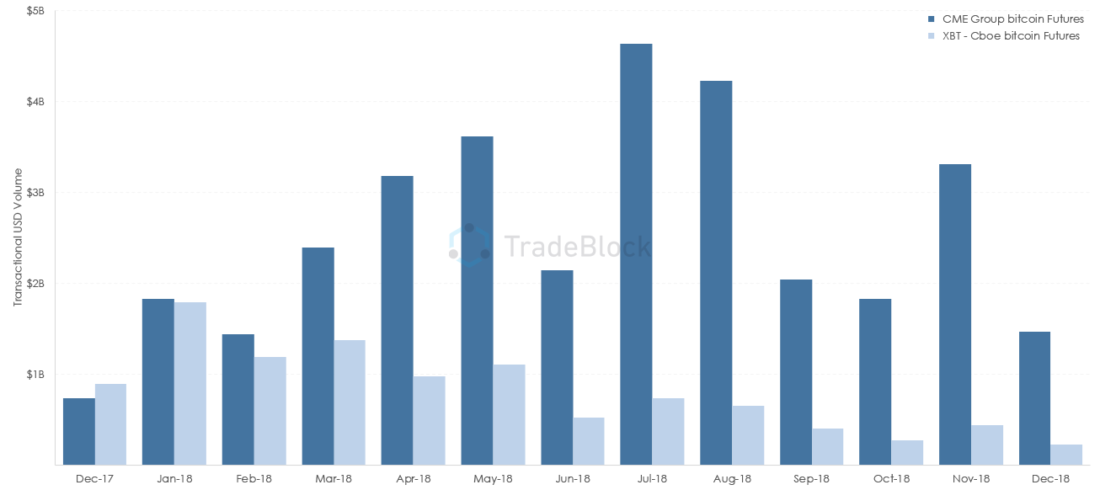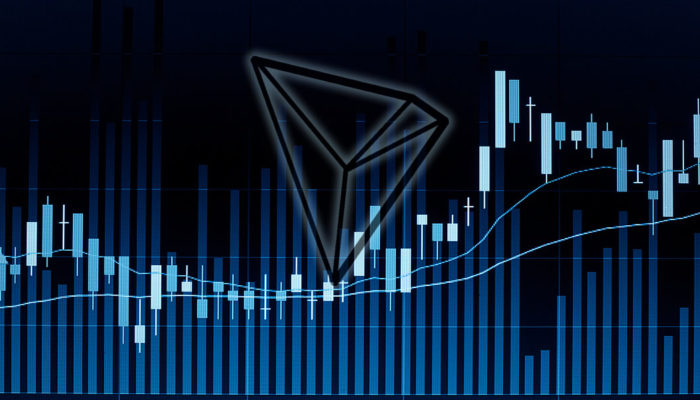![]()

There is no future in Bitcoin futures, at least at Chicago Boards Options Exchange (Cboe).
The largest US options exchange announced Thursday that it would not add XBT futures contracts for trading in March 2019, 14-months after it listed them. However, Cboe said its currently listed contracts would remain active. That means XBTM19, the exchange’s last registered contract, will expire in June 2019. Excerpts from the statement:
“Chicago Futures Exchange (CFE) is assessing its approach with respect to how it plans to continue to offer digital asset derivatives for trading. While it considers its next steps, CFE does not currently intend to list additional XBT futures contracts for trading.”
Skeptics took Cboe’s decision as a sign of the bitcoin’s deinstitutionalization, arguing that the cryptocurrency’s overstretched bearish run was a turn off for the US futures exchange. Market analyst Alex Krüger called the whole episode “unfortunate,” while a consensus among bitcoin bears blamed the cryptocurrency’s overstretched fall for Cboe’s delisting.
An Uninterested Lot
One has to learn that Cboe, in the end, was offering a trading product. It could not have faced a delisting if the demand for it was high. Data shows that Cboe bitcoin futures volume never crossed above $2 billion since launch. On the other hand, demand for a similar product offered by the Chicago Mercantile Exchange (CME) was way higher.

CME vs. CBOE Bitcoin Futures Volume 2018 | Source: TradeBlock
Overall, the stark difference between Cboe and CME explains why the former had to call the quits. It was merely an unpopular product, also confirmed by Cboe’s notice that didn’t reveal why it was delisting bitcoin futures in the first place.
Nevertheless, let’s not believe that bitcoin futures at CME were faring any better. The exchanged posted huge volumes probably because it offered attractive discounts/incentives throughout 2018. Their offers expired in February 2019, so there might be a possibility that CME would follow Cboe’s footsteps.
Bitcoin’s Deinstitutionalization is a Myth
In contrast to what the skeptics believe, the delisting of bitcoin futures products does not harm bitcoin’s value one bit. These products are cash-settled, meaning speculators do not buy or sell actual bitcoins in the process. On the contrary, they merely bet on bitcoin’s future value. Let’s consider this example to understand it further:
Suppose BTC is trading at $3,000. The asset’s futures on CME is available for $3,100 and they expire in a month. A bullish trader, say, decides to purchase two futures contracts for $6,200. Meanwhile, a bearish trader decides to shot two futures contracts for $6,200. At the time of the contracts’ expiry, the BTC price reaches $3,500. As a result, the bull trader makes a gain of $1,000, bringing the end amount to $7,200. At the same time, the bearish trader has to pay $1,000 for his/her loss, bringing its capital down to $5,200.
In the entire process, not a single penny worth of bitcoins are exchanges or traded. On the contrary, the loser settles the contract with the winner using cash. That explains the name “cash-settled bitcoin futures.”
In contrast, the new bitcoin futures that would see a launch this year would be physical-based. It means speculators would settle their contracts using the actual bitcoin tokens. Firms such as Bakkt, Nasdaq, ErisX, and CoinFLEX are set to introduce their bitcoin trading platforms in 2019.
Copyright © 2023 iCryptome.com
- MEG Announces Purchase Agreement for 2,000 Units of D1, BYD’s Custom Electric Ride-hailing Vehicle
- Cellebrite Adds Cryptocurrency & Blockchain Investigations Solution to Industry Leading Digital Intelligence Platform
- VINFAST ANNOUNCES COMMENCEMENT OF VF e35 & VF e36 RESERVATION AND BLOCKCHAIN TECHNOLOGY APPLICATION AT CES 2022
- Mycelium Partners with BlocPal to Enable Crypto-Fiat Solutions for Next Generation Mycelium Wallet
- Blockchain Analytics Startup Breadcrumbs.app, Raises a $1.6 Million Seed Round Led by Distributed Global Capital, Cadenza Ventures, and Spartan Group

















